This piece discusses the finale of Love Is Blind Season 5.
When the one and only couple that got married in the fifth season of Netflix’s Love Is Blind exchanged vows in Friday’s finale, my heart sank. It’s not that the moment wasn’t romantic in itself, or that I haven’t, in the past, set aside my concerns about cast members making lifelong commitments to people they’ve only known for a few weeks in order to feel vicarious joy at the show’s unions. It’s just that none of this season’s engaged couples seemed especially compatible—Lydia and Milton, the ones who actually tied the knot, least of all.
After a relatively low-conflict fourth season that resulted in three marriages out of four couples, fans have been savoring the drama of the show’s latest episodes, featuring singles from Houston. Cast parodies abound on TikTok. The social media platform formerly known as Twitter leaves no interaction undissected (Joel Kim Booster thinks the singles are too hot). Love Is Blind Season 5 has been among Netflix’s three most-watched English-language series every full week since it started rolling out last month. And the takes keep coming. “Love Is Blind Reveals Its Messiest, Most Explosive Twist Yet,” Vanity Fair gasped when it came out that Lydia and another cast member, Uche, had dated before appearing on the show. Vulture went so far as to defend Lydia after Uche accused her of Instagram-stalking his female friends.
Yet, when you remember that there are real people behind the breathless headlines, the show’s soapy mess keeps getting harder to enjoy. Even if you can get past the uninspiring couples and the ambiguity surrounding producers’ role in casting two people who’d unsuccessfully dated, Love Is Blind lawsuits and exposés continue to pile up. The latest to make headlines, from a Season 5 cast member, includes allegations of sexual assault. (The production companies named in the suit, Kinetic Content and Delirium TV, have called its claims “meritless.”) Bad matches and especially reports of dangerous conditions behind the scenes call into question the ethics of watching one of TV’s biggest dating shows. They also suggest a dark side to the boom in unscripted romance—from The Golden Bachelor to Love in Fairhope to Twin Love, to name a few fall releases—that has accelerated over the past few years, with the launch of so many new streaming services that have also made it possible to mainline these programs 24 hours a day.
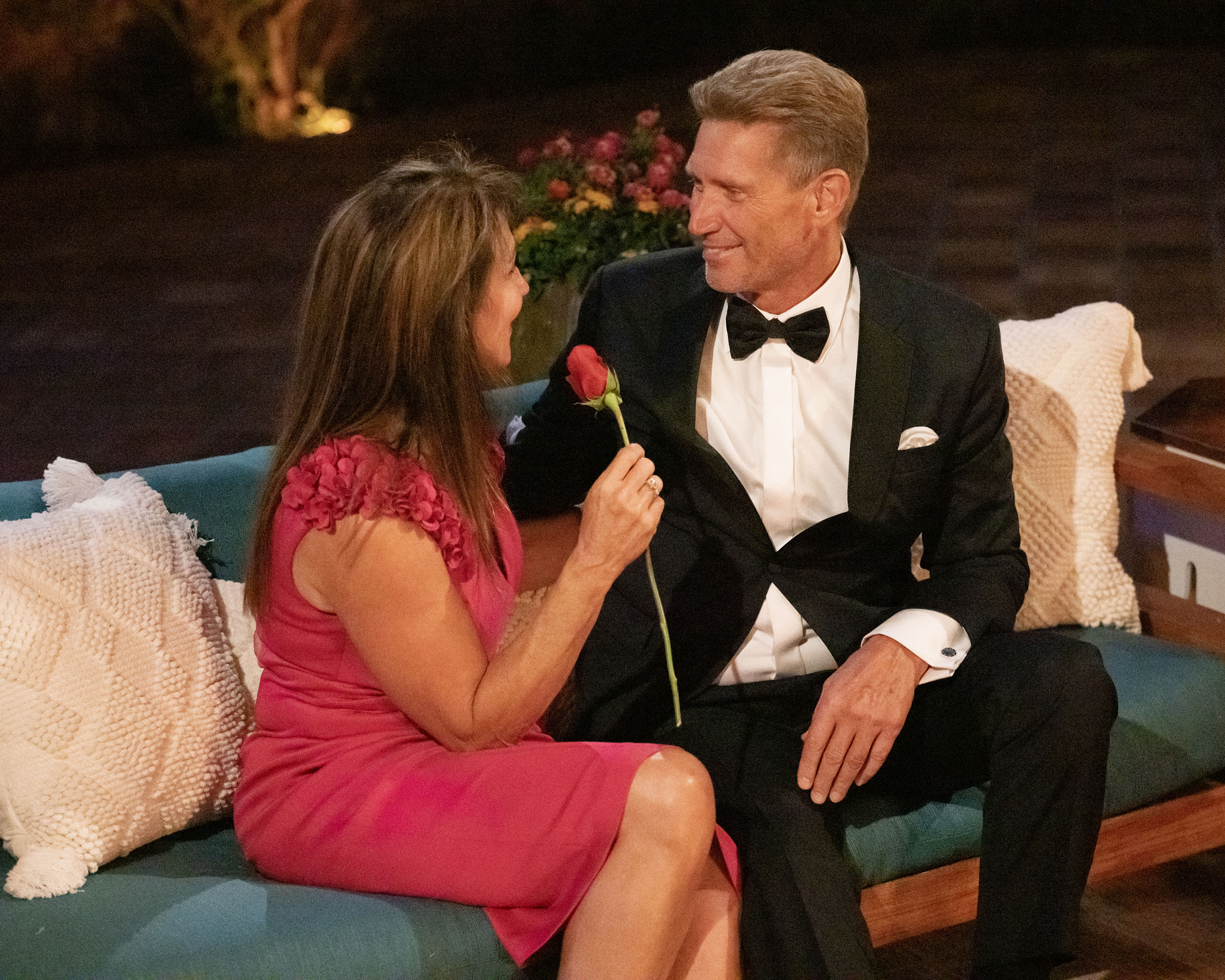
Reality dating shows have always thrived on a mix of fantasy and conflict. The Bachelor perfected this formula, weaving together one winner’s fairy-tale romance with the scrapping, snarking, and scheming of two dozen or so women who don’t get the guy. By featuring a handful of engaged couples, Love Is Blind strikes its own balance. There are the ones who seem destined for each other from the minute they meet (Lauren and Cameron from Season 1, Brett and Tiff from Season 4), and then there are the ones who drive each other—and viewers—crazy.
Until Season 5, which followed just three sets of fiancés, all of whom fell into the latter category. By the end of the post-engagement Mexico vacation, JP and Taylor had broken it off because he couldn’t get over how much makeup she’d worn at their first meeting. (Yes, really, on reality TV.) Stacy and Izzy did make it to the altar, but only after weeks of squabbling over his bad credit score and her expectation that her future husband would have the money to bankroll first-class plane tickets. Thankfully, she said I don’t.
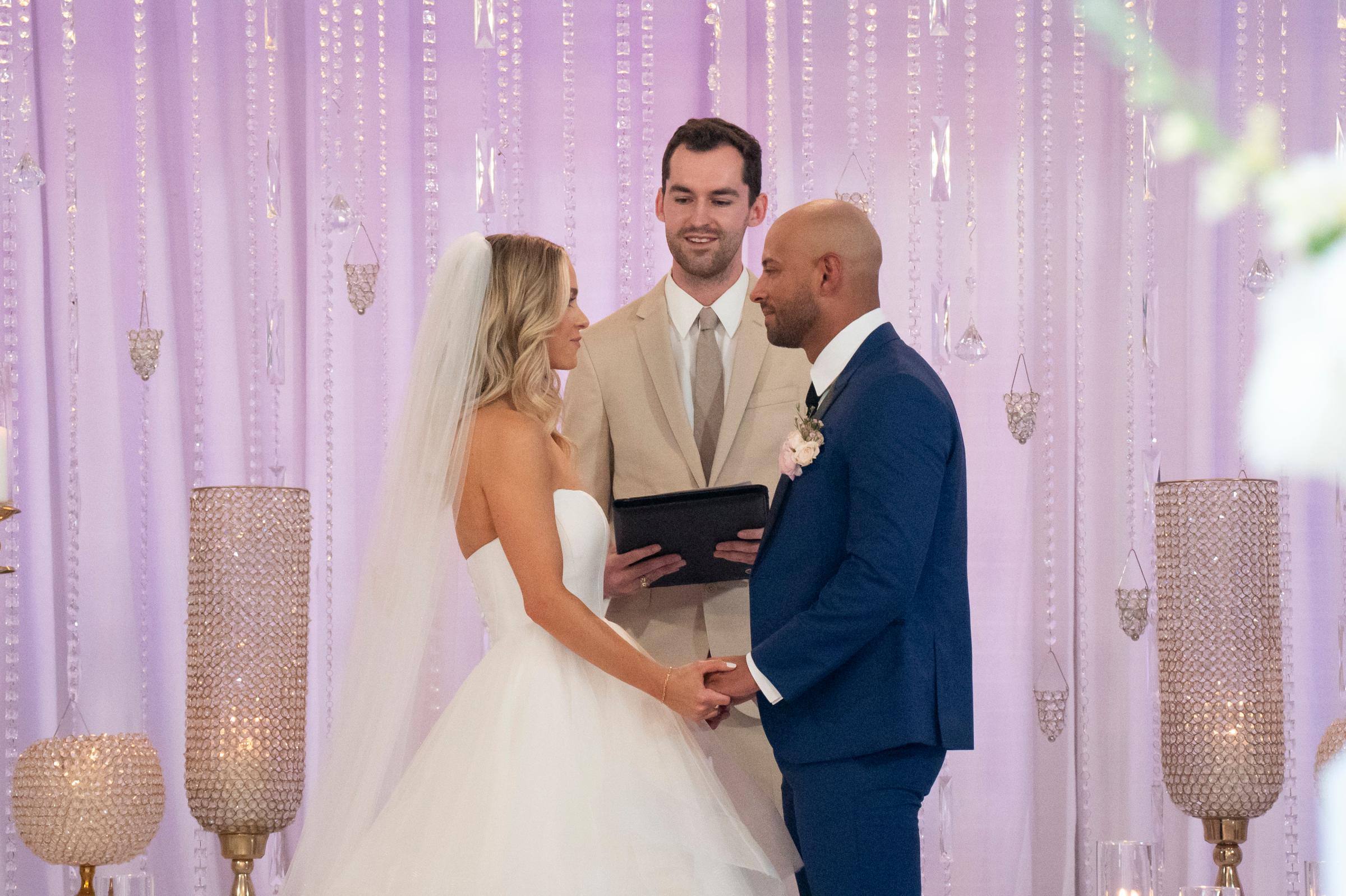
Which left the slow-motion trainwreck that was Lydia and Milton. Lydia, a 30-year-old geologist, initially falls for Izzy. When he picks Stacy over her in the pods, she’s briefly crushed. But she quickly moves on to Milton, an engineer who, at 24, is the season’s youngest cast member. Sweet, easygoing, and endearingly nerdy (the two science buffs’ version of flirty banter includes microscope talk), he simply doesn’t seem experienced enough to make a lifelong commitment to anyone—much less a woman who appears to be more interested in locking down some husband, any husband, than she is in any one particular man.
Then it comes out that Lydia and Uche, a 34-year-old lawyer, had dated and broken up months before the taping. We see footage of her identifying him in the pods, and proposing that they give their relationship another shot. Uche isn’t interested. So poor Milton is actually Lydia’s third choice. Meanwhile, on the verge of proposing to Aaliyah, a 29-year-old nurse with whom he shares a love of poetry—but whom he has also harshly shamed for her admission that she is, as he puts it, “a recent cheater”—Uche reveals his past with Lydia, now Aaliyah’s close friend. Lydia proceeds to fill Aaliyah’s head with information about Uche that Aaliyah has begged her to keep to herself. Stressed and confused, Aaliyah leaves the show. A subsequent meeting with Uche is portrayed on the show as a definitive breakup, although both parties have said they continued pursuing a relationship afterward. And then, at a conspicuously choreographed “party” midway through the season, Uche starts makes serious accusations about Lydia’s behavior when they were together.
In other words, it’s a season that could convince you love is not blind but dead—a season that couldn’t even put a happy face on its so-called social experiment by marrying off one reasonably sympathetic couple. (In a reunion episode set to drop on Sunday, Oct. 15 at 8 p.m. ET, we’ll find out if Lydia and Milton are even still married.) And its unpleasantness has made cracks in the show’s foundation more visible than ever. As in past seasons, multiple couples got engaged but weren’t featured in the heavily edited footage, which suggests that none of these relationships was either exciting enough to showcase or idyllic enough to provide a coveted fantasy storyline.
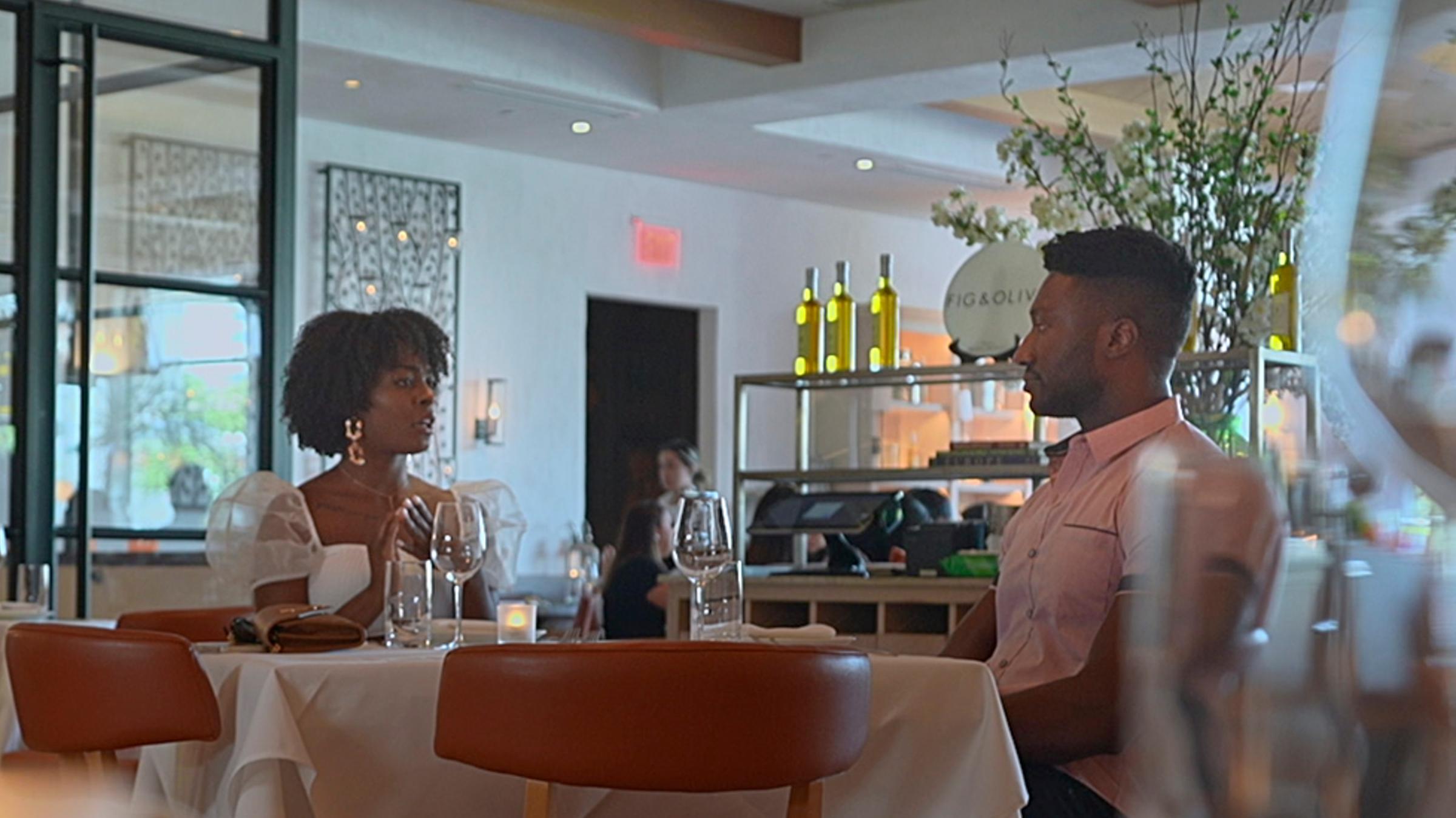
Maybe, as cast members like Nick Thompson from Season 2 keep speaking out about conditions behind the scenes (and reality stars at large explore unionization), it’s getting harder for the show to attract sympathetic singles who audition “for the right reasons.” One lawsuit, from a Season 2 participant who didn’t make it past the pods, alleges that the cast was underpaid, underfed, sleep-deprived, and over-served alcohol on set. (Kinetic released a statement insisting that there was “absolutely no merit” to these allegations.) In a subsequent investigation from Insider, cast members reported everything from inadequate sleeping accommodations to insufficient mental health screenings. (Kinetic replied: "The wellbeing of our participants is of paramount importance to Kinetic. We have rigorous protocols in place to care for each person before, during, and after filming.") But the Season 5 lawsuit is the most alarming of all, claiming that plaintiff Tran Dang was sexually assaulted by the man she’d gotten engaged to in the pods, Thomas Smith (who has denied the allegations), and that producers failed to address the situation when she approached them. Neither Dang nor Smith actually appears in the season; they’re not even included in Netflix’s cast list.
A reality title as popular as Love Is Blind was always going to face heightened scrutiny, but even when you account for that extra attention, it’s clear that cast members have continuously come away feeling wronged—at the very least—by the production team. This is nothing new in the reality-dating sphere. Look back on the two-decade history of The Bachelor franchise, and you’ll find a class-action discrimination suit (that was later dismissed), sexual harassment litigation, and a long list of abuse accusations, sexual misconduct controversies, racism, and even suicides involving cast members, on set and off. Without lumping in genuine tragedies with soapy scandals, it seems fair to conclude that the highly stage-managed environment of reality dating just isn’t healthy.
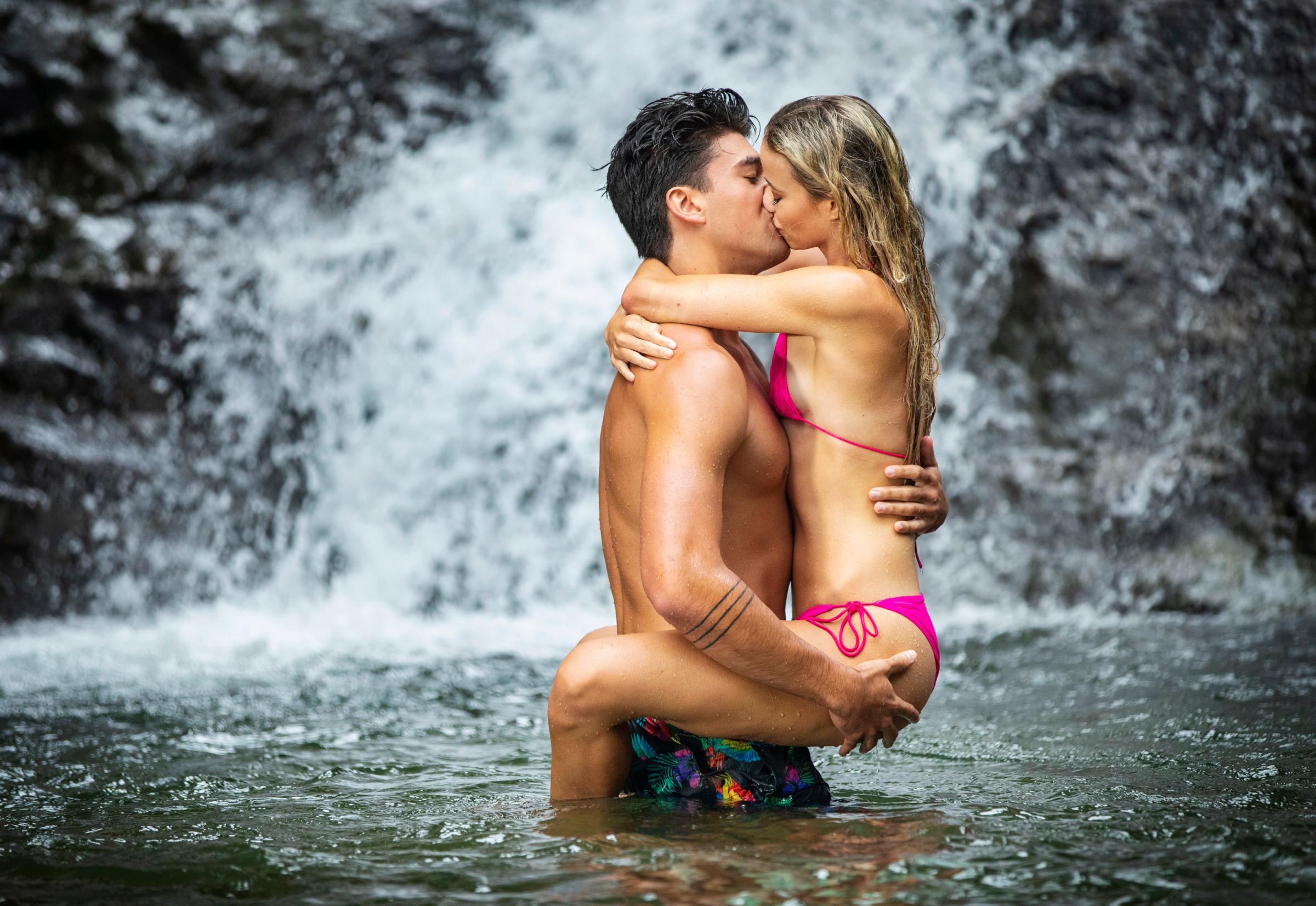
This may be the case for viewers as well as participants. Shows that spotlight super-hot, half-naked singles have been shown to fuel body anxiety and even suicidal thoughts. Speaking of Love Island, the franchise was called out by name in a 2021 Frontiers in Sociology article; Alicia Denby of the University of Manchester concluded that it portrayed “female contestants as overly emotional and irrational,” thus perpetuating “outdated stereotypes surrounding emotionality and hysteria.” And an especially depressing 2006 study found that, as Psychology Today summarized its findings, “the total amount of time spent watching reality dating shows was related to adversarial sexual beliefs, the endorsement of a double standard when it comes to sex, and the belief that men are sex-driven, and that appearance is important in dating.”
That’s even more worrisome when you think about how much more time it’s possible to spend watching this stuff in 2023 than when the study was published. Dating shows aren’t confined to prime-time anymore. You can find them on networks, cable, and streaming—where archives can go back decades, and where reality’s cost-effectiveness has made them an attractive programming option as execs scramble for profits. Love Is Blind’s popularity isn’t an anomaly, either. If The Bachelor franchise had begun to stagnate as competitors proliferated, The Golden Bachelor has renewed viewers’ interest, with more than 11 million people tuning in to the premiere across ABC and Hulu. Last month, the racy British import Naked Attraction—which has singles picking a date from a selection of fully, frontally nude bodies—became Max’s most-watched title.
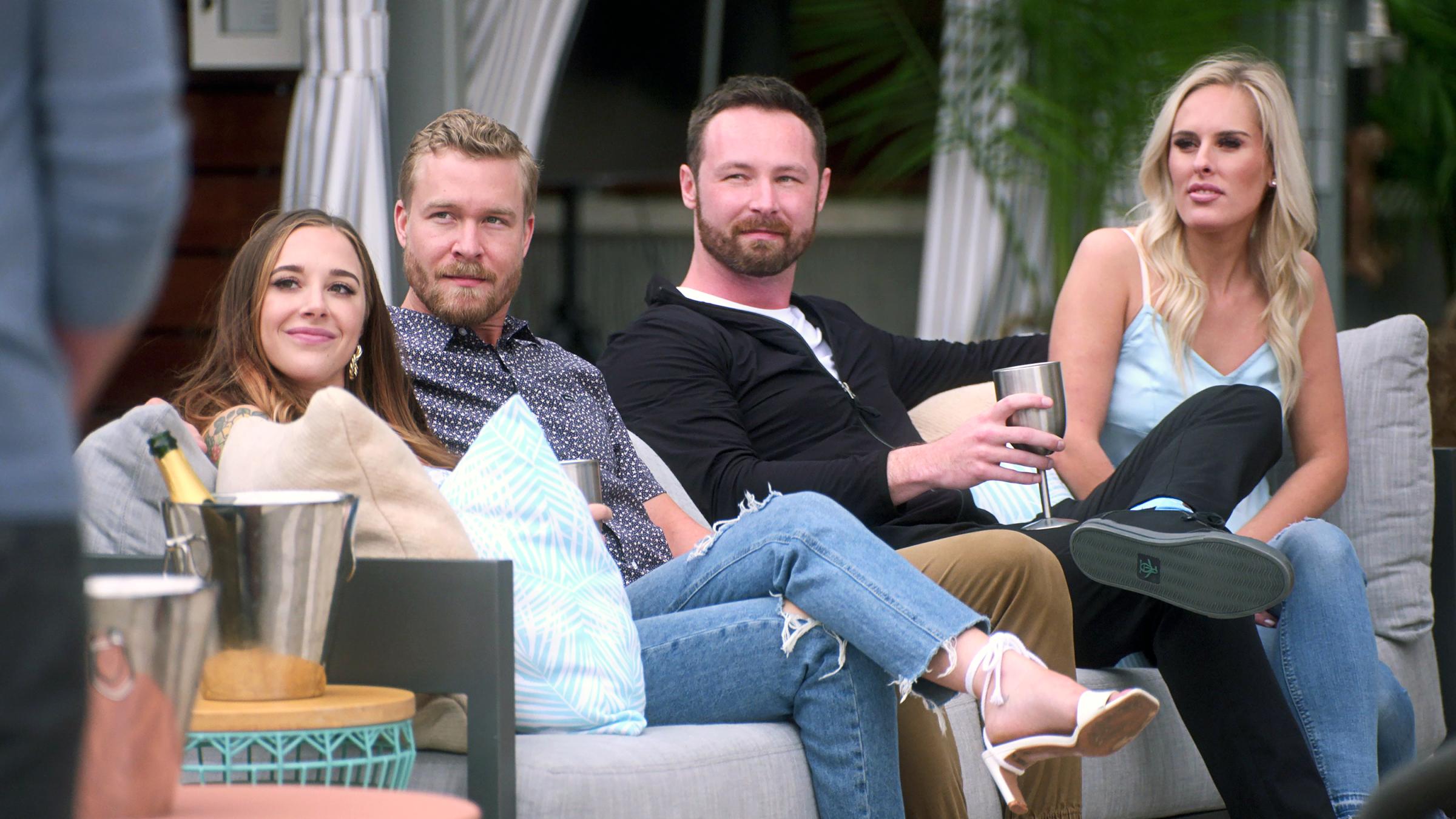
Creators’ efforts at keeping an aging format fresh have yielded a long tale of offbeat premises. Amazon took an astrological approach with Cosmic Love. Netflix’s atrociously titled Dated and Related and Amazon’s upcoming Twin Love make mate selection a family affair. TLC’s MILF Manor is exactly what you think it is. There are self-aware competitions like Max’s FBoy Island, currently airing its third season, after a move to the CW. Netflix’s The Ultimatum, from the same producers as Love Is Blind, is so ill-conceived that the hosts include a disclaimer: “psychologists agree that an ultimatum is not a good way to get somebody else to do what you want.”
The most insufferable new dating show of the bunch, in my estimation, is neither a competition like The Bachelor nor a social experiment like Love Is Blind. It’s Hulu's Love in Fairhope, a highly choreographed, Bravo-style docusoap, albeit with a breezier, more romantic tone and alternately pseudo-profound and gently judgmental narration from, for some reason, Heather Graham. The stars are five women navigating love at different stages of life, in the small town of Fairhope, Ala.. Episodes open with an odd note: “The following is a collision of reality and fantasy featuring real people and inspired by their own stories.” Try to deduce from that how much of what you’re seeing reflects the cast members’ real relationships, I dare you. The best reason to believe Fairhope is grounded in reality is that it’s so boring.
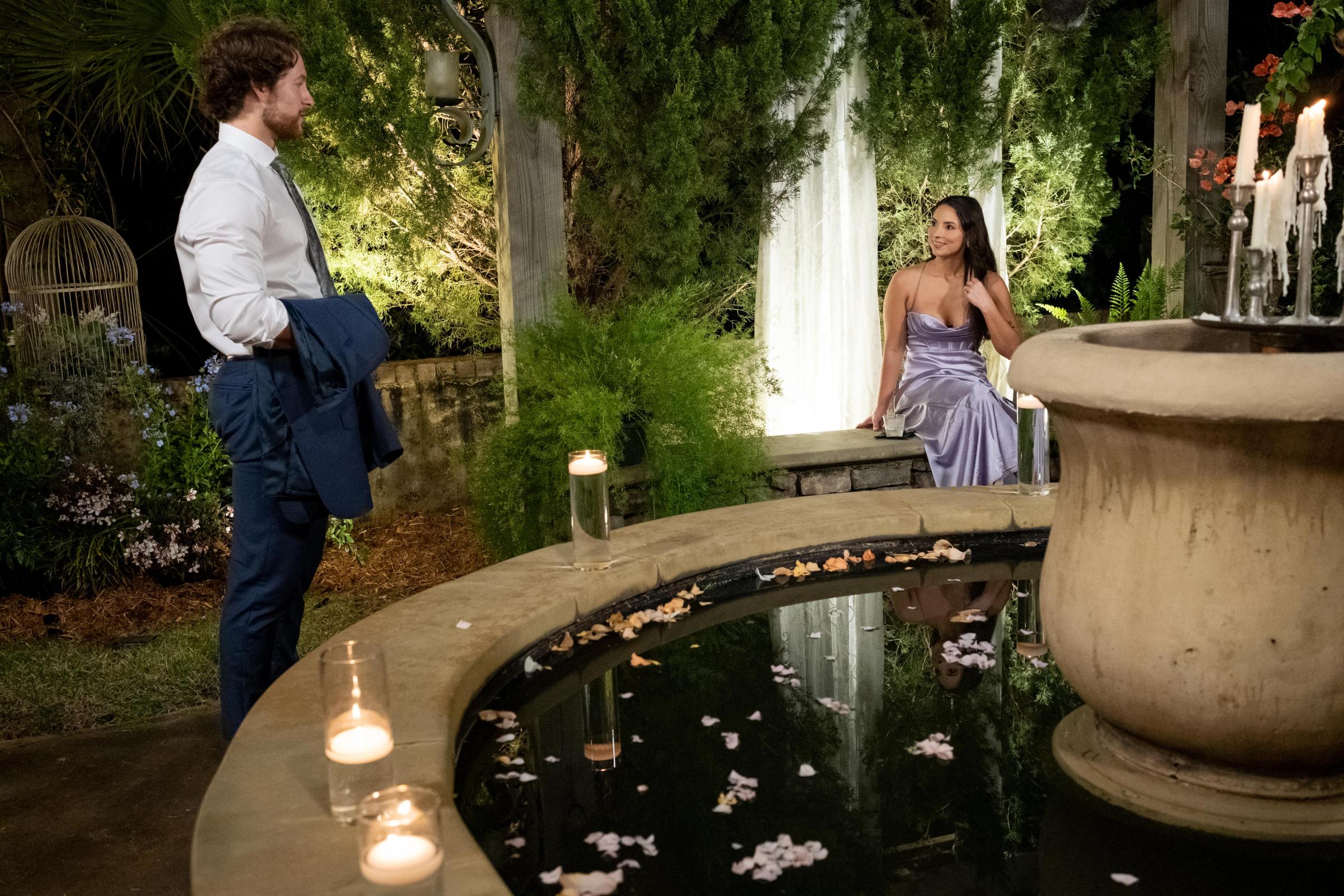
As the deceptions, delusions, and alleged abuses of this past season of Love Is Blind have underscored, nothing good can come of so much reality-TV artifice masquerading as true romance. In fact, the more manipulative these shows get, the more they remind me of a very different unscripted series about young people looking for love that recently debuted: Amazon’s Desperately Seeking Soulmate: Escaping Twin Flames Universe. The three-part documentary investigates a disturbing online community whose husband-and-wife leaders got rich off a program that preaches relentless pursuit of one’s supposed spiritual soulmate—and that defectors claim has led to restraining orders, as well as pressure for members to change sexual orientations and gender identities. (Like dating show viewers, adherents are overwhelmingly straight and female. So how do you pair them up as twin flames? Easy: gaslight some of them into believing they’re queer or trans.) Asked to describe Twin Flames’ pricey video seminars, a journalist profiled in the doc likens them to “a therapeutic reality show.” Call it Love Is Divined.
More Must-Reads from TIME
- Donald Trump Is TIME's 2024 Person of the Year
- Why We Chose Trump as Person of the Year
- Is Intermittent Fasting Good or Bad for You?
- The 100 Must-Read Books of 2024
- The 20 Best Christmas TV Episodes
- Column: If Optimism Feels Ridiculous Now, Try Hope
- The Future of Climate Action Is Trade Policy
- Merle Bombardieri Is Helping People Make the Baby Decision
Contact us at letters@time.com